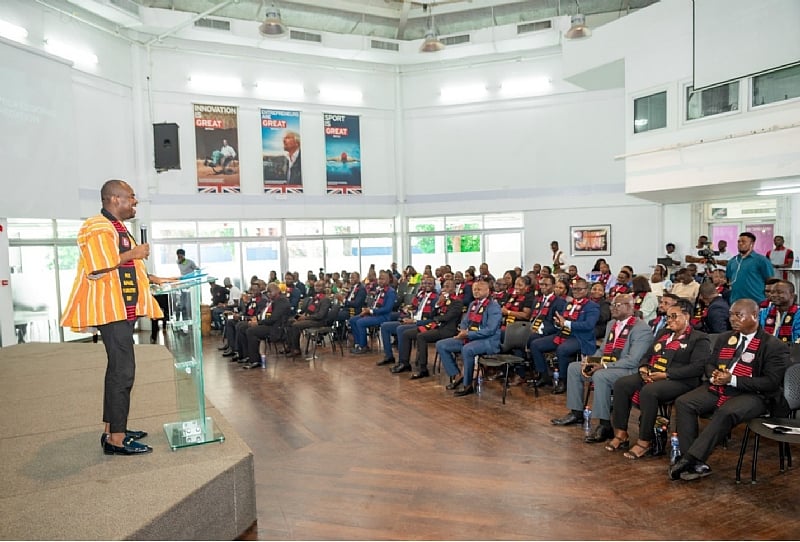Professor Raphael Nyarkotey Obu, a distinguished naturopath, has presented a compelling argument for the pivotal role of herbal medicine in revitalizing Ghana’s economy and, by extension, the economies of other African nations. He posits that the vast, largely untapped potential of traditional African medicine represents a powerful economic engine capable of addressing critical economic challenges such as currency devaluation, unemployment, and over-reliance on imports. Prof. Nyarkotey’s central thesis is that a strategic focus on developing and industrializing the herbal medicine sector can unlock significant economic opportunities, generate substantial export revenue, create jobs, and contribute to currency stability. He emphasizes the urgent need for African leaders to recognize and prioritize this often-overlooked resource.
Prof. Nyarkotey highlights the inherent economic value present in readily available indigenous herbs, citing hibiscus, moringa, neem, and dandelion as prime examples of “untapped economic goldmines.” He estimates that Ghana alone could generate over $10.2 billion annually by strategically promoting these herbs in the global market. He details the specific economic potential of each herb, noting moringa’s water purification properties and nutritional value, hibiscus’s growing demand in the global beverage industry, neem’s wide-ranging applications in medicine and agriculture, and dandelion’s increasing popularity in Western markets. This exemplifies the potential for value addition and diversification within the herbal medicine industry, extending beyond traditional medicinal uses.
Furthermore, Prof. Nyarkotey advocates for strengthening the regulatory framework governing the herbal medicine sector. He proposes elevating the Traditional Medicine Practice Council (TMPC) to an authority with enhanced powers to regulate and promote herbal products both domestically and internationally. This strengthened regulatory body would be instrumental in standardizing quality, ensuring safety and efficacy, and facilitating market access for herbal products, thereby boosting investor confidence and promoting international trade. This structured development is crucial for building a credible and sustainable herbal medicine industry capable of competing on the global stage.
Prof. Nyarkotey draws a parallel between the economic success of countries like China and India, which have effectively leveraged their traditional medicinal knowledge, and the untapped potential of Africa. He argues that Africa possesses a wealth of traditional knowledge and resources that, if properly harnessed, could propel significant economic growth and development. He stresses the importance of looking inwards and recognizing the solutions readily available within Africa’s own ecosystems and traditional practices. This self-reliance, he suggests, is a crucial step towards breaking free from dependence on external forces.
The call to action extends beyond government and policymakers. Prof. Nyarkotey specifically addresses graduating economists, urging them to embrace innovation rooted in local resources and lead the charge in reshaping Africa’s economic landscape through the strategic development of the herbal medicine sector. He envisions a paradigm shift where economists play a key role in integrating traditional knowledge with modern economic principles, developing sustainable business models, and promoting the integration of herbal medicine into mainstream healthcare systems. This interdisciplinary approach is essential for realizing the full economic potential of the sector.
Prof. Nyarkotey’s address, delivered at the graduation ceremony for Chartered Economists and Health Economists, has sparked renewed interest in herbal medicine as a viable economic pathway for Ghana and other African countries. The event, organized by the Global Academy of Finance and Management (GAFM) in collaboration with the International Certification Center (ICC), brought together stakeholders from academia, healthcare, and economic sectors, fostering a platform for dialogue and collaboration. The renewed focus on herbal medicine signifies a potential turning point in recognizing the sector’s economic significance and its potential to contribute to currency stability and overall economic prosperity, not just in Ghana but across the African continent.


